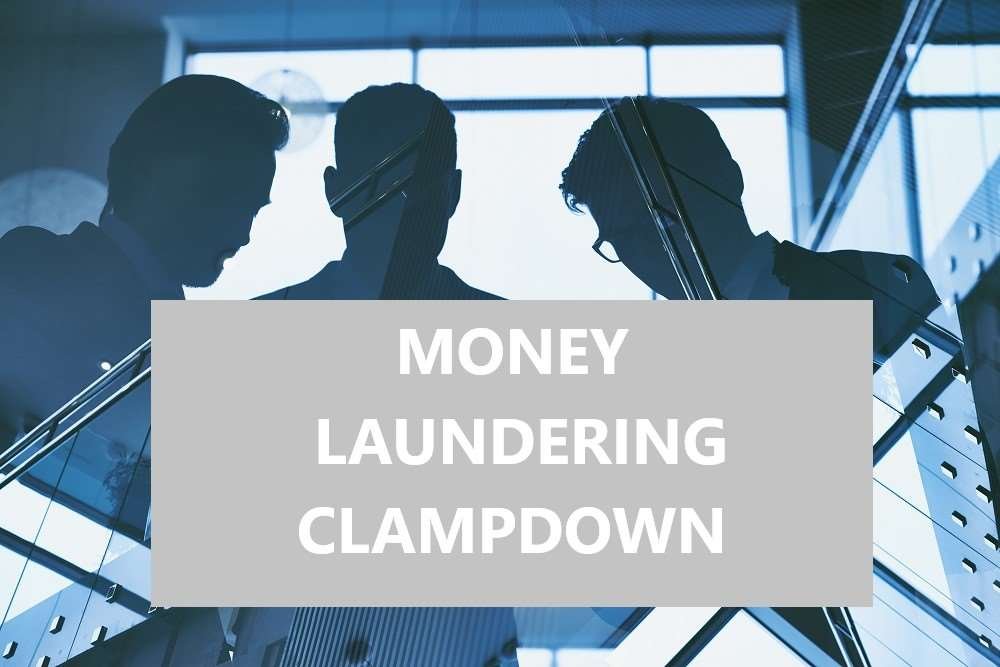Government targets Limited Partnerships in money laundering clampdown
Published by Gbaf News
Posted on May 2, 2019
7 min readLast updated: January 21, 2026

Published by Gbaf News
Posted on May 2, 2019
7 min readLast updated: January 21, 2026

by Eamon McCarthy-Keen, Associate, Peters & Peters Solicitors LLP
The UK Government plans to introduce reforms to Limited Partnerships (“LPs”), as part of its clampdown on the use of LPs for money laundering, corruption and tax evasion purposes. Scottish LPs (“SLPs”) have been widely linked to international money laundering, in part because of their separate legal personality and, unlike companies, they can be composed entirely of offshore corporate partners. The Government’s reforms include new registration, reporting and transparency requirements for existing and new LPs and a new requirement for LPs to demonstrate a connection with the UK. The proposals will also provide new powers for Companies House to strike off dissolved LPs or LPs no longer carrying on a business.While the reforms are seen as necessary and proportionate, they will increase the administrative burden for existing and new LPs.
Commercial uses of LPs
LPs have been used for a variety of purposes and in various industries, including pensions, real estate and oil and gas. They have recently become the standard vehicle for venture capital and private equity funds, providing flexibility and fiscal advantages.Notably, LPs do not need to be managed from the UK, which is an attractive feature for fund managers seeking monies from foreign investors for investment portfolios. SLPs have the additional benefit of having separate legal personality, allowing them to enter into contracts and own property in their own right.
The number of SLPs has substantially increased in the last decade, accounting for around two-thirds of the LPs currently on register (approximately 48,000). The National Crime Agency, the UK’s principalanti-money laundering law enforcement body, believes that some of this rise may be explained by the use of SLPs for money laundering and corruption purposes.
Partners in crime
SLPs are alleged to have been used in the Russian ‘Global Laundromat’ money laundering scheme, whereby at least USD20 billion was allegedly diverted from the Russian treasury and state contract through a number of fictitious loans and sham litigation. 113 SLPs are said to have been involved in the scheme. The fact that no natural persons are required to be either the general partner or limited partner of an SLP means that both can be offshore companies, adding a second layer of opacity.
SLPs were also allegedly linked to the Azerbaijan ‘Laundromat’ money laundering scheme, a similar scheme involving the laundering of USD2.9 billion. Among the 50 UK entities allegedly used in the Azerbaijan scheme, 20 were SLPs.
New reforms
In April 2018, the Government published a consultation paper proposing reforms and inviting responses during its consultation period.Nearly 50 respondents from the industry, mainly accountancy and law firms, and pension funds and trusts, responded to the Government’s call for evidence.
In December 2018, the Government published a further paper following the end of its consultation period, taking into account the responses from the regulated sector.The Government plans to introduce the following reforms in four key areas:
The Government intends to legislate these reforms “when parliamentary time allows”. We anticipate these reforms coming onto the statute books this year, Brexit permitting. The Government is also considering how these proposals will apply to existing LPs and transitional arrangements and plans to consult on a broader package of reforms to Companies House later this year. Details of the requirements, including the procedure for challenging inadvertent strike-offs and the extent of the strike-off provisions, remain to be seen. LPs would do well to continue monitoring these developments and plan accordingly.
Implications for companies (and money launderers)
The reforms, as they stand,will not require LPs to have a principal place of business in the UK to demonstrate a UK connection:a service address in the UK with an AML-regulated agent will suffice. This was a key concern for funds managed overseas. The proposed reforms are broadly seen as reasonable and necessary. The Government is keen on ensuring that LPs, which provide a significant contribution to the UK economy, do not lose their commercial appeal and flexibility.
The new reforms will, nonetheless, carry an additional administrative cost for existing and new LPs. Existing LPs will need to ensure that their agents comply with the new reporting requirements. Funds should advise their investors, particularly those that are natural persons, that their personal information will need to be disclosed. Whilst new LPs will need to seek the services, if they have not done so already, of an AML-regulated agent, which will invariably drive up costs.
Whether these new proposals will deter money launderers will depend, as with all new reforms designed to deter criminal activity, on effective enforcement. Evidence suggests that the new rules introduced in 2017 requiring SLPs to provide data on their persons of significant control have not been widely complied with- less than half of all SLPs have done so according to reports.This does not forebode well that the new registration, reporting and transparency requirements will be effectively policed. In addition to the proposals, the Government would be wise to allocate further resources to an already-stretched Companies House to enforce the new rules, rather than merely adding to its burgeoning task list.
Firms setting up LPs, for their part,should also conduct enhanced due diligence on their clients and, in particular, on the purpose of setting up the LP. Since 2017, firms are criminally liable if they fail to prevent the facilitation of tax evasion.So, if they inadvertently set up an LP for the purpose of evading domestic (or foreign) taxes, they are at risk of incurring criminal liability if they do not have reasonable prevention procedures in place.
Explore more articles in the Top Stories category











